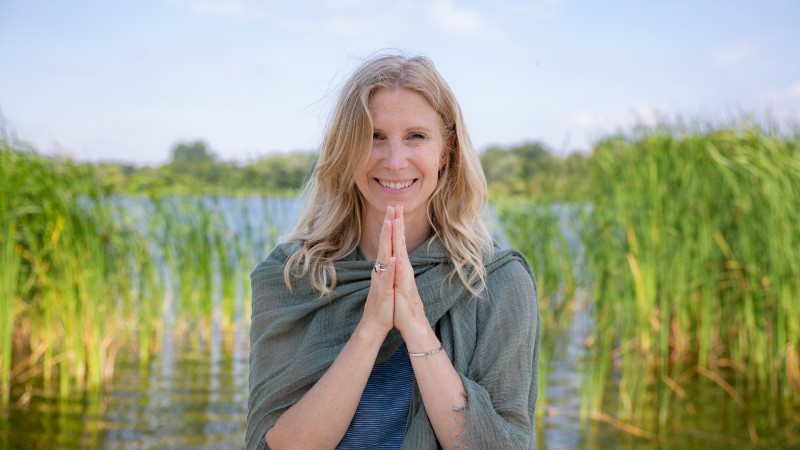‘Mindfulness’ is a billion dollar industry. This ancient system has been transported into the 21st century, along with all the merchandise, courses and books to go with it. But while those ‘How to be Mindful’ self-help books and online courses all have their place, practicing is actually quite simple and the benefits of mindfulness are accessible to everyone. All we really need to do is tune into our intuition a little more, and pay attention to life.
5 key benefits of mindfulness
1. Mindfulness helps us to experience life in all its fullness
Mindfulness isn’t some new age hippy theory and it isn’t just for those who practise yoga. It’s an important practice for everyone, no matter who you are. Mindfulness is actually very simple; it’s just about paying attention to life. Mindfulness doesn’t mean wandering around in a trance-like state, analysing every minute action and floating through life. It’s very much about experiencing life in its entirety – because more often than not, we tend to miss most of it…
Alan Watts equates life to music in one of his lectures, and it couldn’t be more true:
“In music one doesn’t make the end of a composition the point of the composition. If that were so the best conductors would be those who played fastest, and there would be composers who wrote only finales. People would go to concerts just to hear one crashing chord; because that’s the end!
[And so with life]. We thought of life by analogy with a journey, with a pilgrimage which had a serious purpose at the end and the thing was to get to that end. Success or whatever it is, or maybe heaven after you’re dead.
But we missed the point the whole way along. It was a musical thing and we were supposed to sing or to dance while the music was being played.”
2. Mindfulness improves the mind’s efficiency
When your mind is ‘full’, what is it usually full of? Indeed, sometimes our minds are full of ideas, inspiration, contentment and passion.. For much of the day, the mind is also full of worry, anxiety, frustration, jealousy and discontentment. And it continues to ruminate for hours. Instead of ‘getting on’ with life, we often let thoughts about life – whether they’re accurate or not – control our attention.
Mindfulness can make the mind a whole lot more efficient. It can help us get to the point of what we’re doing or thinking about, rather than allowing a cycle of constant worry to take over.
Many Yogic texts speak of cultivating Eka-Grata, meaning ‘one-pointedness’ or ‘one-pointed focus’. This is where our mind is utterly focused on the action we’re engaged with. You may instinctively feel yourself being (as Mihaly Csikszentmihalyi calls it) “in the flow” – which incidentally, is also thought to be ‘the secret to happiness’.
3. Mindfulness gets us in the ‘flow’
Skiing, snowboarding or skateboarding, along with more common sports like swimming and running are often where people feel they’re ‘in the flow’. Totally focussed on and absorbed with the action they’re engaging with and no intermittent thoughts or distractions*. Because of this, we often enjoy what we’re doing and are likely to improve each time we practise it.
Mindfulness is a little like this: if we choose to be utterly immersed in what we’re doing (whether it’s skiing or mopping the floor), we actively choose to be more ‘alive’ in that moment. We’re also more likely to enjoy what we’re doing and become better at it too.
We may not feel as though mopping the floor, washing dishes or any other day-to-day tasks are worth paying attention to, but they’re all part of the music of life….
*For more on this, read ‘The flow state and how to get there‘
4. Mindfulness leads us to absorption
Mindfulness can be equated to two of the steps towards meditation, and a part of Patanjali’s Eight Limbs of Yoga, known as Dharana and Dhyana.
Dharana is translated as ‘holding’ or ‘holding steady’. It relates to holding something in our attention whilst practising the steps towards meditation, whether that thing is an object, a deity, the breath or a mantra. Many Tantric practices use a specific mantra or a yantra (a geometrical diagram, or any object, used as an aid to meditation in tantric worship) to focus on as a point of meditation. Each mantra or yantra represents a certain power or quality to be imbibed.
Dhyana is the action of becoming absorbed into the object of focus. Thought to be the penultimate stage of yoga, translating as ‘contemplation’ or ‘reflection’, this is the part where all other thoughts and distractions cease, and we are really truly there in that moment.
5. Mindfulness teaches us to appreciate the Now
Mindfulnessis not a practice intended to take us away from the world and render us useless, it’s not something to ‘do’ for an hour each day and forget about. What mindfulness is, is a way to teach us about ourselves and the world around us, and to help us become kinder, stronger, more compassionate and useful human beings.
By practising mindfulness within everyday tasks, we can begin to bring the mind into a habit – since the mind and physical brain are so malleable and ‘plastic’ – of being more mindful in each situation we meet. The first step is to practise mindfulness with something simple, such as washing the dishes.
In Thich Nhat Hanh’s book The Miracle of Mindfulness’, he tells us one simple phrase which I have always remembered since reading it: “Wash the dishes to wash the dishes”….
How often do we hurry a task or duty, just to get it out of the way? How often do we do everyday things whilst thinking and planning the rest of life? To quote John Lennon; “Life is what happens to you while you’re busy making other plans”
Everyday benefits of mindfulness
To experience mindfulness for yourself, take a task you do every day and really ‘do’ it. Pay undivided attention to it and feel it. While washing up, for instance, feel the warmth of the water, the bubbles, the texture of the plates and cups. Wash up as an act of kindness to yourself and others.
Once you’ve practised things like this for a while, you may be able to apply this in other situations. When you’re in conversation, maybe you’ll really hear and focus on the person in front of you, rather than just waiting to speak. When you’re eating a meal, maybe you’ll stop and appreciate the tastes and nourishment of the meal. Maybe you’ll feel what it’s like to understand the point of life; to sing or dance while music is played….


